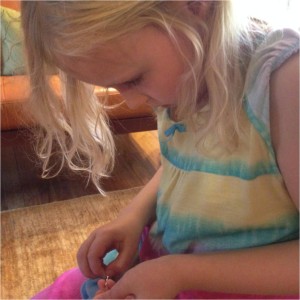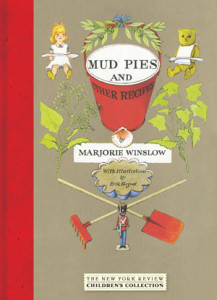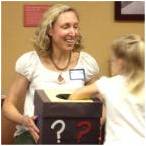Your home is your child’s learning environment. So what might the environment of your early reader look like?
Books will become a huge part of your child’s learning environment. As your child becomes an early reader, she will delight in a bedroom that holds many books in shelves, and a comfortable bed, table and chair for reading. A reading light over your child’s bed that is dim enough to sooth, but not too bright, will help support their likely wish to read before nodding off. As your child becomes a more proficient reader, she will likely to return to favorite books. She may be almost 8 years old and still look back at board books in between venturing into Harry Potter or an encyclopedia of North American frogs. Books become friends to your early reader who may want to keep many of her books – so consider more bookshelves. Of course, toys and clothing are in your early reader’s room too but hidden in bins to free her of distracting clutter.
Distractions can influence your child becoming an early reader who is motivated to learn as much as possible. Screen time can become a major distraction. If you have TV, consider keeping it behind cabinet doors and on only in the evening after bedtime. Consider limiting your child’s time on the iPad, too. Interestingly enough, you may find your child will want to craft or pursue other creative outlets instead of iPad time. The key point is that your early reader’s environment is set up so that reading is what he wants to do, because other distractions like TV and the computer are a controlled privilege.
Clutter can be another distraction. Consider keeping your child’s toys in her room in containers. Fewer toys can foster creativity. Contrary to what some might think, more “stuff” does not necessarily lead to a happier, smarter child. Instead, more seems to lead to a child who is only satisfied with the latest toy.
Cultivating imagination and creativity can help cultivate your child’s interest in early reading. Creative play that encourages imagination can help motivate him to become an early reader. To foster your child’s imagination and creativity, focus on providing materials and places inside your home dedicated to your child learning. Elsewhere in your home where you and your child frequent, consider providing an ease l and stocking a craft cabinet. Supply obvious things like glue, crayons, and paper to the less obvious like recycled clothes, tape, cardboard tubes and boxes. You will find your child may choose to create if they are not far from the action in your home with less screen time and clutter. Once your early reader is comfortable in their learning environment that you create, and wants to learn to do something, like sewing or building a model rocket, he will read about it first and then give it a go. Free of screen time distractions and clutter, he will find entertainment in what is available in the current environment rather than wanting new toys or more time on the computer.
l and stocking a craft cabinet. Supply obvious things like glue, crayons, and paper to the less obvious like recycled clothes, tape, cardboard tubes and boxes. You will find your child may choose to create if they are not far from the action in your home with less screen time and clutter. Once your early reader is comfortable in their learning environment that you create, and wants to learn to do something, like sewing or building a model rocket, he will read about it first and then give it a go. Free of screen time distractions and clutter, he will find entertainment in what is available in the current environment rather than wanting new toys or more time on the computer.
If possible, a backyard or other outdoor space can benefit your early reader. It doesn’t have to be big – but it should be secure and private. Ideally, it is fenced in and private enough your child can easily explore and play without your constant attention. A sandbox is a favorite are a where your imaginative one can make cakes for backyard fairies or pursue a career as a famous scientist. A garden is another favorite for learning the names of various herbs and plants, which become material for creations or samples for the microscope. A birdfeeder too is an endless source of inspiration for research, drawing and storytelling. Again, only a few toys hidden in containers – mostly tools for creating, exploring and moving the body.
a where your imaginative one can make cakes for backyard fairies or pursue a career as a famous scientist. A garden is another favorite for learning the names of various herbs and plants, which become material for creations or samples for the microscope. A birdfeeder too is an endless source of inspiration for research, drawing and storytelling. Again, only a few toys hidden in containers – mostly tools for creating, exploring and moving the body.
Regardless of where you live, your early reader is most likely to thrive in an uncluttered environment where easily accessible books are the main entertainment and screen time is limited and tied to privilege – where toys fulfill needs rather than to satisfy wants and are a special treat.
What is your early reader’s home environment? How do you cultivate early reading?







